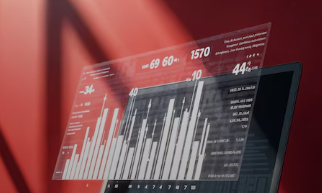Written by: Haim Ravia, Dotan Hammer
Recent legal filings highlight ongoing conflicts between generative AI companies and content creators over copyrighted material.
A proposed class action settlement in Bartz v. Anthropic PBC addresses Anthropic’s alleged large-scale copyright infringement for torrenting and commercially exploiting books obtained from pirated datasets, specifically Library Genesis (LibGen) and Pirate Library Mirror (PiLiMi), to train Anthropic’s Large Language Models (LLMs). The settlement, preliminarily approved by the federal court judge presiding over the case, is said to be the largest publicly reported copyright recovery in history.
Anthropic has agreed to pay at least $1.5 billion (plus interest) into a Settlement Fund. With approximately 500,000 works in the litigated class, this amounts to an estimated gross recovery of $3,000 per copyrighted work in the litigated class. In addition to monetary relief, Anthropic will destroy the original files of the LibGen and PiLiMi datasets, as well as any copies derived from them. The agreement grants a past release only for conduct up to August 25, 2025, and explicitly does not release any claims related to allegedly infringing outputs generated by Anthropic’s AI models.
Meanwhile, two new complaints allege similar copyright infringement claims.
Encyclopedia Britannica and Merriam-Webster have recently sued Perplexity AI, alleging that Perplexity’s generative AI “answer engine” engages in massive, unauthorized copying of the plaintiffs’ content without remuneration to create a substitute product that “cannibaliz[es] traffic” away from their websites. Copyright infringement is alleged to occur at the data curation stage (using PerplexityBot to crawl and scrape), the input stage (copying articles to prompt its Retrieval-Augmented Generation or RAG model), and the output stage (generating verbatim or summarized reproductions). The complaint also alleges trademark infringement because Perplexity uses plaintiffs’ famous marks alongside AI-generated “hallucinations” (made-up content) or misleadingly incomplete reproductions, causing consumer confusion and harming the value of the trademarks.
In another recently filed lawsuit, authors accuse Apple of direct copyright infringement concerning its commercial AI platform, Apple Intelligence. The complaint asserts that Apple used Books3 — a dataset of pirated books derived from the Bibliotik private tracker — to train its OpenELM language models and its larger Foundation Language Models. The plaintiffs allege Apple also utilized its web scraper, Applebot, to collect training data, potentially sourcing pirated works from shadow libraries. This unauthorized use deprives creators of licensing revenue and threatens market dilution from competing AI-generated outputs.
Click here to read the complaint against Apple.
Click here to read the complaint against Perplexity AI.
Click here to read the motion for preliminary approval of class settlement in Bartz v. Anthropic PBC, and click here to read the proposed settlement agreement.



